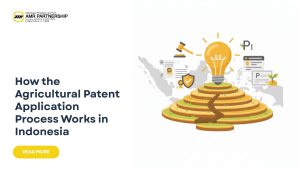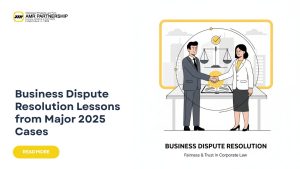
The rapid advancement of artificial intelligence (AI), particularly in generative models, is raising new legal concerns surrounding company IP. As AI technologies become increasingly capable of creating images, text, and multimedia, businesses must navigate evolving risks that could impact the protection of their intellectual property rights. In this article, we explore how company IP faces unprecedented challenges in the AI era and why legal guidance from experts such as AMR Partnership is critical.
READ MORE: How Long Is Intellectual Property Valid For? Duration of Copyright, Patents, and Trademarks
Understanding the Risks of AI Training on Proprietary Content
Company IP and Unlicensed Data Use
Company IP encompasses trademarks, patents, copyrights, trade secrets, and industrial designs. As businesses rely more on digital innovation and branding, safeguarding these assets is paramount. AI training, however, presents a unique risk: the unauthorized use of proprietary data.
Many generative AI systems rely on massive datasets scraped from the internet. Without strict data governance, these datasets may include copyrighted works, trade secrets, and branded content owned by companies. This practice raises red flags for potential IP infringement, particularly in jurisdictions where fair use defenses are limited or narrowly defined.
When proprietary logos, designs, or creative works are used without permission to train AI, the result may be synthetic content that mimics or reproduces original assets. This puts the original owners of company IP at risk of market dilution, brand confusion, and economic loss.
Legal Grey Areas in Machine Learning Datasets
While machine learning models do not retain direct copies of training data, their ability to reproduce content that is “substantially similar” is a legal grey area. If an AI model generates images or materials closely resembling a company’s protected IP, the company may struggle to assert its rights under traditional IP frameworks.
This complexity demonstrates why organizations need to review and reinforce their IP strategies—particularly in their data licensing agreements and monitoring practices. Engaging with legal professionals who understand emerging IP challenges in AI contexts is essential for companies that want to stay protected.
READ MORE: What Content Is Not Protected by Copyright? Know the Limits of IP Law
Challenges in Enforcing Company IP Against AI-Generated Content
IP Enforcement in the Era of Generative Outputs
Traditional IP enforcement mechanisms were designed for human-created works. Today’s AI systems, however, can produce content at scale and with sophistication, complicating enforcement. For instance, AI-generated marketing materials may inadvertently replicate distinctive brand assets, raising questions about who is liable—the tool developer, the user, or the data curator.
This lack of clarity affects legal remedies. Current litigation trends indicate that businesses may face challenges proving ownership, establishing infringement, or holding AI developers accountable. These enforcement gaps are particularly relevant for industries like entertainment, fashion, publishing, and tech—where brand identity and design play central roles.
Monitoring and Detection of AI Infringement
Detecting AI-generated content that infringes company IP is another major obstacle. Unlike direct copying or counterfeiting, AI tools produce derivative works that may only partially resemble the original. This makes automated detection difficult, especially across multiple platforms or digital formats.
To address this, companies are beginning to invest in AI-driven monitoring tools that detect visual or linguistic similarities in third-party outputs. However, the effectiveness of these tools depends heavily on the company’s original IP being formally registered and documented. Collaborating with IP firms that offer digital monitoring solutions is an effective way to stay ahead of potential misuse.
READ MORE: What Are the Penalties for Copyright Infringement in Indonesia?
Building a Proactive IP Strategy for AI Risk Mitigation
Registration and Documentation of Company IP
One of the most effective ways to protect company IP in the AI era is to ensure comprehensive registration and documentation. This includes trademarks, industrial designs, software copyrights, and trade secrets. Without formal protection, enforcing rights becomes far more difficult in court or negotiation.
Companies should also clearly mark proprietary content and maintain internal records of creation dates, licensing terms, and usage rights. These practices provide vital evidence if infringement occurs due to AI-generated content.
Firms like AMR Partnership offer end-to-end support for registration, documentation, and portfolio management of IP assets. With decades of experience and a global network, AMR ensures that businesses maintain legal clarity and protection over their intellectual property.
Drafting Strong Licensing and Data Use Agreements
Another key strategy is to review all licensing agreements to specify data usage rights, particularly in contracts involving vendors, developers, or partners using AI tools. These agreements should outline restrictions on content usage in training datasets and prohibit the generation of derivative works that mimic proprietary materials.
By drafting clear, enforceable agreements with the support of experienced IP professionals, companies can reduce exposure to downstream infringement caused by third-party AI applications. AMR Partnership provides expert legal drafting services tailored to the needs of modern, innovation-driven businesses.
READ MORE: What Is the Difference Between Copyright and Intellectual Property? Explained Simply
AI and IP: The Role of Law Firms in Protecting Business Assets
Advisory and Compliance Services
Given the pace of AI development, companies may find it challenging to stay updated on new legal precedents and compliance requirements. Partnering with an IP law firm ensures that businesses are aligned with evolving international IP standards and AI governance policies.
Firms like AMR help clients assess their risk exposure, audit their existing IP assets, and develop tailored strategies to mitigate legal threats. Whether through proactive consultation or reactive litigation support, legal partners play a vital role in preserving company IP.
Litigation and IP Enforcement Services
When infringement does occur, swift and strategic litigation is essential. Law firms provide critical support in gathering evidence, initiating takedown requests, and representing clients in disputes. In the context of AI, where infringers may operate anonymously or across borders, experienced IP litigators offer the necessary reach and expertise.
AMR Partnership, established by Mrs. Amalia Roosseno and backed by a global alliance of legal networks, has successfully represented numerous clients in complex IP disputes. Their commitment to precision and international coordination positions them as a trusted ally for businesses facing AI-related IP challenges.
READ MORE: What Cannot Be Protected as Intellectual Property? Limits, Exceptions, and Grey Areas in IP Law
Educating Stakeholders About AI-Driven IP Risks
Employee and Vendor Awareness Programs
Protecting company IP requires collective effort. Internal stakeholders, including employees and vendors, must be educated about the risks of unauthorized data sharing and content usage. This is particularly important for marketing, creative, and IT teams who regularly interact with digital content.
Companies should implement IP training sessions, update their acceptable use policies, and define internal guidelines for AI tool usage. These measures promote compliance and reduce unintentional IP exposure.
Firms like AMR can assist in designing and delivering effective IP education programs, ensuring all stakeholders understand their roles in safeguarding valuable assets.
Engaging the Public Through IP Education
In addition to internal awareness, companies may benefit from public-facing education campaigns that reinforce their commitment to IP protection. This not only discourages infringement but also enhances brand reputation.
By publishing thought leadership content and engaging in public dialogue about ethical AI development, companies can position themselves as responsible innovators. Collaborating with legal partners to ensure messaging aligns with legal realities ensures accuracy and impact.
- Phone (Hunting): +62-21-29036668
- Fax: +62-21-29036672 to 75
- WhatsApp Customer Service: Click here to chat
- Instagram: @amrpartnership
- TikTok: @amr.partnership
- Facebook: Law Firm AMR Partnership
- Official Website: www.amr.co.id






